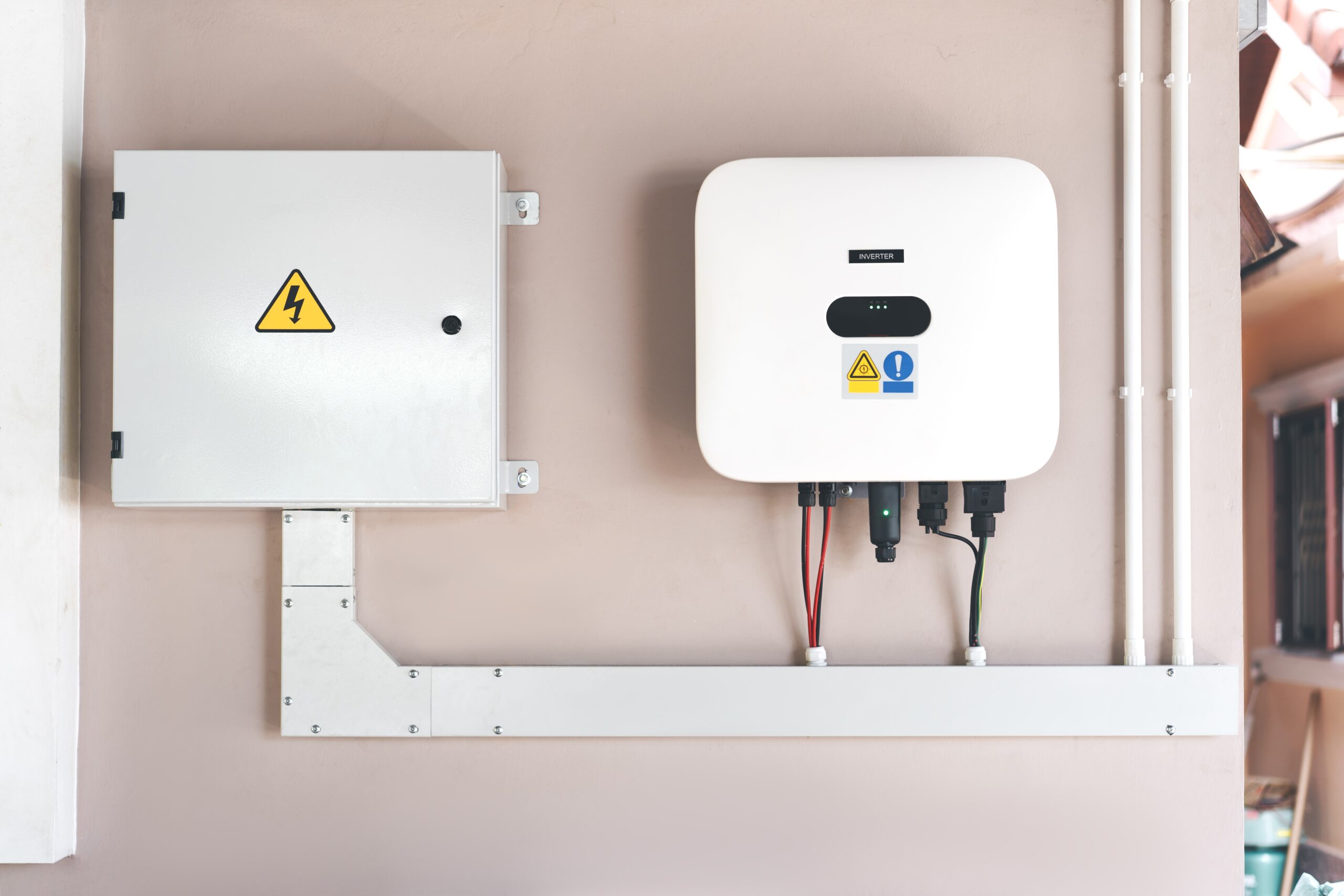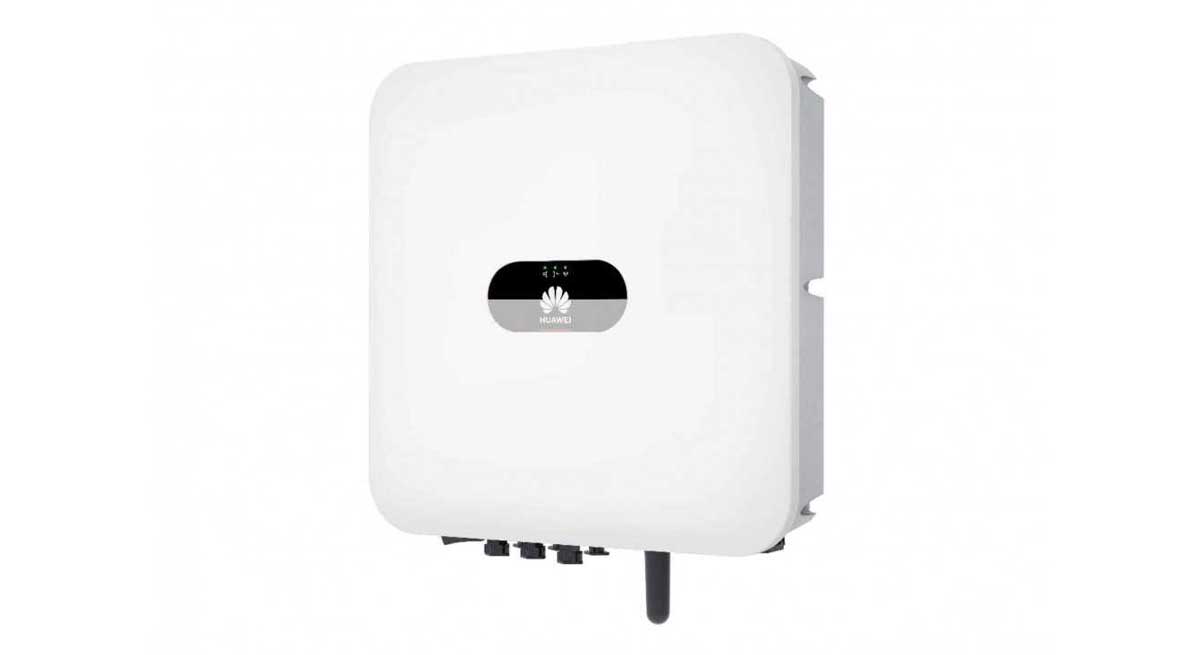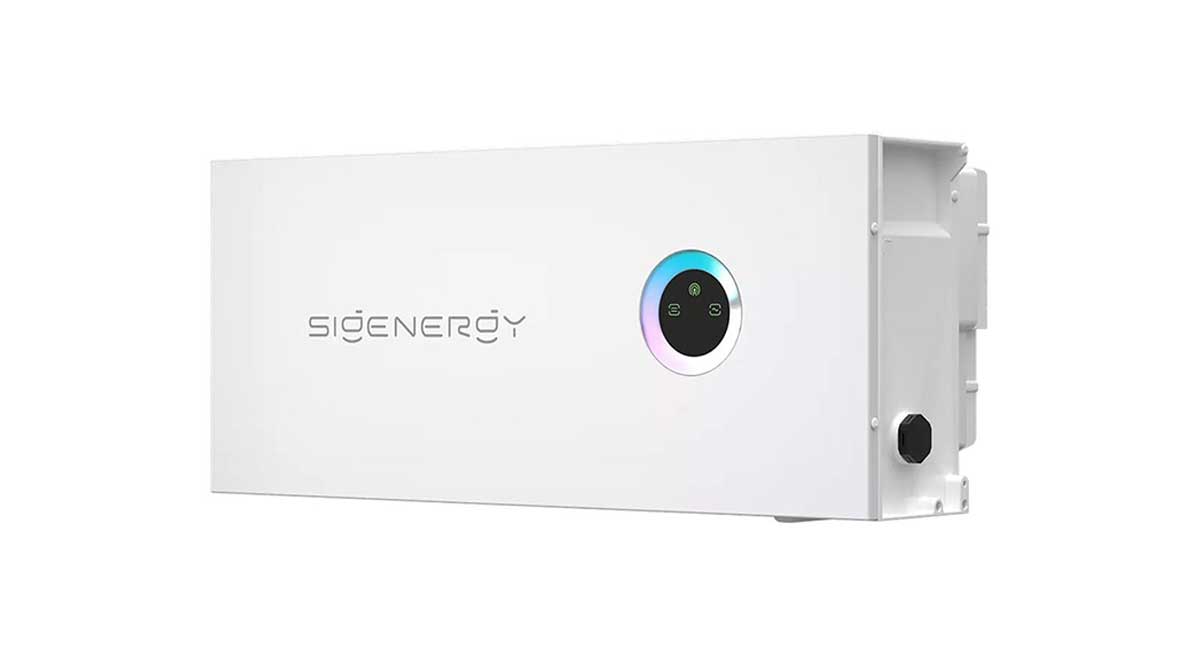Table of Contents
- 1
- 2
- 3
- 4
- 5
- 6
What is a Solar Inverter? A Guide for Irish Homeowners
A solar inverter is an essential component of any solar PV system. Without the inverter, the whole system simply doesn’t work. They take the power generated from solar panels and make it usable in your home.

Key Takeaways
- 1A solar inverter converts DC power from solar panels into usable AC electricity
- 2There are three types of solar inverters: string, hybrid, and microinverters.
- 3A standard string inverter will cost €500 – €1,900, or €900 – €2,800 for a hybrid.
What is a Solar Panel Inverter?
A solar inverter is the central hub of a solar PV system. It ensures that the power generated by your solar panels is usable in your home and connects all the devices in the system.
The primary functions of a solar panel inverter are:
DC – AC Conversion: Converting the DC power generated by solar panels into AC electricity usable in the home.
Electricity Distribution: Distributing that power as needed to loads in the home, to the grid, or to other devices such as a solar battery or power diverter.
System Monitoring: The inverter also provides insights into the health and performance of the solar PV system. This data can be monitored through a specialised software platform.
How does a Solar Inverter Work?
- 1
DC Power Input: Your solar panels produce DC electricity. This is sent through the system’s wiring to the inverter.
- 2
Power Conversion: The DC power is run through multiple transistors that switch on and off rapidly to convert this to AC power.
- 3
Power Output: The AC electricity is output as a clean sine wave that can synchronise with the power grid.
The inverter also has to make sure that your home draws on electricity from your solar panels first, rather than the grid. It does this by supplying electricity at a higher voltage than grid power.
Your inverter must also match the maximum expected power input from the solar panels and the necessary power output for your home. Read more about choosing the Right Size Solar Inverter.
The Different Types of Solar Panel Inverter
There are three main types of solar inverters used in domestic solar PV installations. These are commonly referred to as String or Grid-Tied Inverters, Hybrid Inverters, and Microinverters.
Each type of inverter will have different strengths and weaknesses based on your needs. For more information, read our guide on Hybrid Inverters vs Microinverters.
String / Grid Tied Inverters
A string inverter is the most common type of solar inverter, with a single unit connecting your solar panels with the household electricity network.
String Inverter Pros
- Simplicity: A single inverter for all panels allows for an easy installation
- Affordability: The least expensive option for a solar inverter.
- System Monitoring: Provides in-depth monitoring of the solar array.
String Inverter Cons
- Battery Incompatible: Cannot be used in conjunction with a solar battery.
- Grid-Connection: Only works with a grid-connected solar system
Hybrid Inverters
A hybrid inverter operates similarly to a string inverter, except that it is also capable of connecting a solar battery storage system.
Hybrid Inverter Pros
- Simplicity: A single hybrid inverter handles the entire solar panel array.
- Battery Compatible: Allows for the charging and discharging of a solar battery.
- Off-Grid/Grid: Works with both grid-connected and off-grid solar PV systems.
- System Monitoring: Provides in-depth monitoring of the solar array.
Hybrid Inverter Cons
- Expensive: Considerably more expensive than a string inverter.
Microinverters
A microinverter differs from string inverters in that it is a smaller unit attached to the underside of an individual solar panel. A solar array will require multiple microinverters to operate.
Microinverter Pros
- Lifespan: Longer lifespan than string or hybrid inverters
- Solar Panel Monitoring: Allows the monitoring of each individual solar panel
- Power Optimisation: Less affected by shading of solar panels than string or hybrid inverters.
Microinverter Cons
- Expensive: More expensive as a whole since multiple inverters are required
- Accessibility: Units attached to the solar panels are harder to access.
- Battery Incompatible: Not compatible with battery storage without another inverter.
How much does a solar inverter cost in Ireland?
The cost of a solar inverter in Ireland will depend on several technical factors about the inverter itself.
- 1Inverter Type: A Hybrid inverter is more expensive than a string inverter. Microinverters are less expensive individually, but they will add up to a larger cost for the entire system.
- 2Inverter Strength: Inverters with a greater power output and input capacity will cost more than smaller equivalents.
- 3Smart Features: Some inverters come with a greater range of features for smart management of your solar PV system.
A single-phase solar panel inverter in Ireland, excluding the price of installation, will cost approximately:
- String Inverter: €500 – €1,900
Hybrid Inverter: €900 – €2,800
Microinverters: €150 – €200 (per unit)
Is there a grant for solar panel inverters?
There is no specific SEAI grant for a solar inverter in Ireland. Instead, the inverter is part of the overall cost of a solar PV system.
The SEAI Solar PV Scheme offers a grant of up to €1,800 in 2026 for domestic solar panel installations. This grant is only available for homes built and occupied before 2021.
Read our guide on how much you can receive and how to apply for the Solar Panel Grant.
Frequently Asked Questions
Yes. Solar inverters should be monitored by the user on a day to day basis for any errors via their monitoring platform. The inverter should also be professionally serviced every 1 – 2 years.
Yes, solar inverters may pose a fire risk from overheating or electrical arcs if they have been poorly installed or damaged. However, this risk is low if properly installed. Modern inverters come with multi-layered protection against fire and electrical damage.
The main factors in the cost of a solar panel inverter are the type of inverter and its power level.
A solar inverter should be installed in an indoor or outdoor location with good ventilation, protection from the elements, and easy access for servicing.
A string or hybrid solar inverter can be expected to last for 10 – 15 years. Microinverters have longer lifespans, lasting up to 25 years.
A string or hybrid inverter will typically come with a 5 – 10 year warranty. Microinverters may have a warranty of 20 – 25 years.
A solar monitoring system is a software platform that can monitor the data from your inverter. This includes solar output, battery charging and discharging, and household electricity usage.
Get Free Solar Quotes Today
Find a local recommended solar panel installer in your area, and get your free quote today. It’s 100% cost and commitment free.





